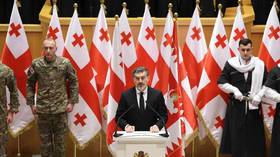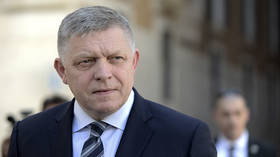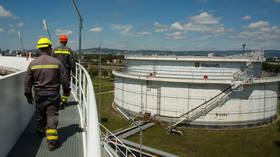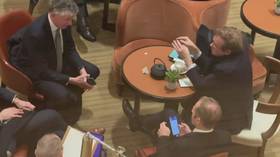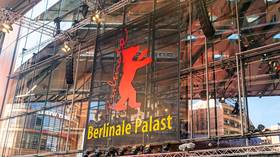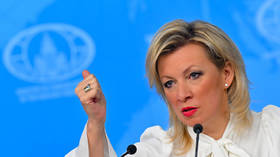Ex-Soviet state to probe crimes by previous pro-Western government – top MP
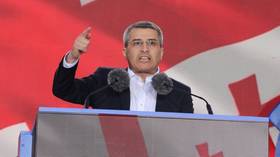
Georgia’s newly elected parliament will investigate alleged crimes by officials from the governments aligned with jailed former president, the US-backed Mikhail Saakashvili, the leader of the ruling Georgian Dream's parliamentary party has announced.
The probe focuses on Saakashvili's United National Movement (UMP) that is currently trying to overturn last October’s election results in which Georgian Dream secured a majority.
MPs will investigate events that took place from 2003 to 2012, parliamentary majority leader Mamuka Mdinaradze said at a briefing on Thursday. Suspected crimes at the time include the torture of convicts, murder, corruption, extortion, and other serious felonies, he stressed.
The timeframe is when the “radical opposition,” which “has been acting as a suffocating force in Georgian politics,” was in power, he said.
In addition to potentially producing new evidence for prosecution, the probe will help the younger generation of Georgian voters who were not adults under Saakashvili’s rule to learn more about his political movement, Mdinaradze added.
Saakashvili was a Washington-backed politician who came to power in Georgia on the back of protests in 2003. His backers claimed that he was turning the country into a “beacon of democracy” among the post-Soviet states.
In 2008, Saakashvili ordered a surprise attack on the then-breakaway region of South Ossetia. A number of Russian peacekeepers stationed in the area to observe a truce between Tbilisi and Tskhinvali were killed in the assault. Russian forces were deployed in response and the Georgian army was quickly defeated. Moscow has since recognized South Ossetia’s independence.
Saakashvili’s power as president was undercut after opposition parties, including what later became the Georgian Dream, secured a majority in the 2012 election. The defeat at the ballot box was fueled by the media, which exposed unsavory aspects of Saakashvili’s policies, such as a reported system of torture of political opponents in Georgian prisons. The new parliament has pushed through constitutional reform, which reverted the country towards a parliamentary political system.
After leaving office in 2013, Saakashvili spent several years building a political career in Ukraine following the 2014 Maidan coup. He returned to Georgia in 2021, defying a warrant for his arrest, and is currently serving a prison term for abuse of power.
